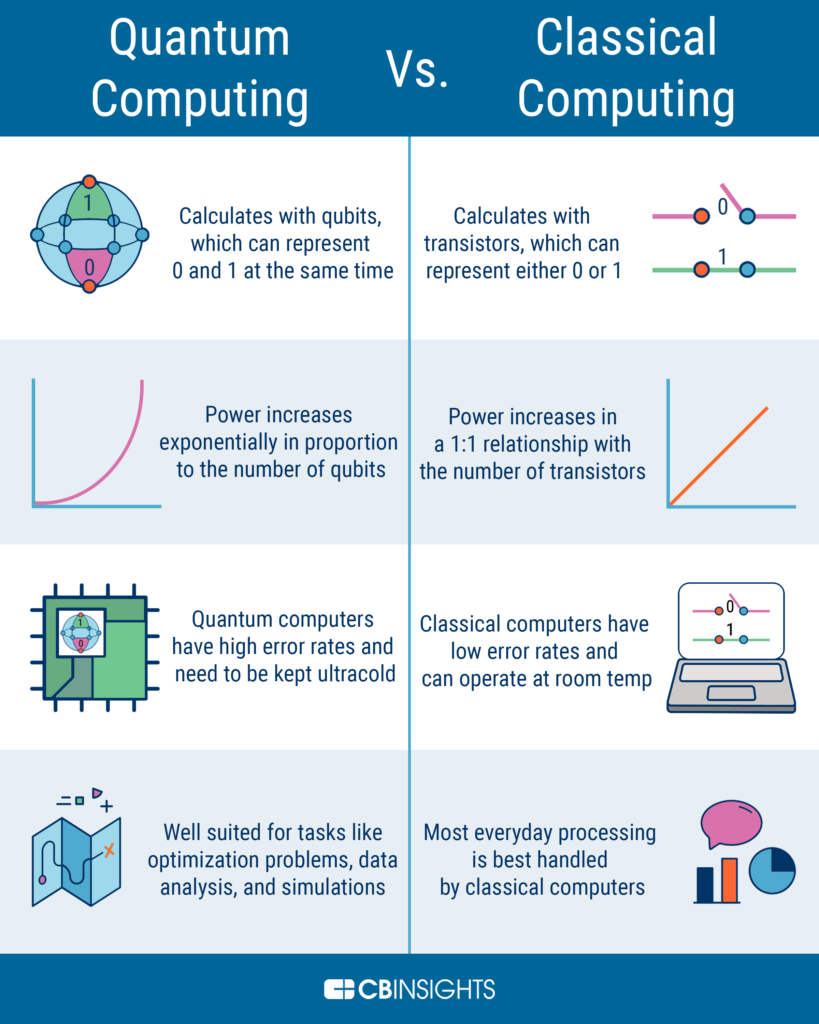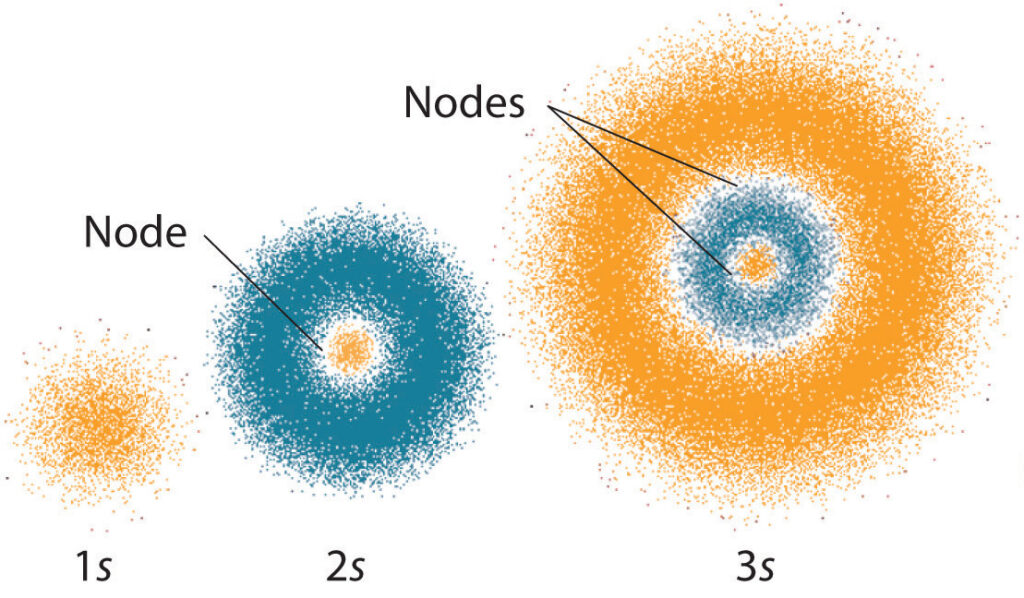Quantum computing is the future of computing technology. It is all set to revolutionize the way we solve complex problems and make computations. One of the most fascinating aspects of quantum computing is the use of logic gates. Logic gates are the basic building blocks of any digital circuit, be it classical or quantum. They are responsible for carrying out logical operations between inputs and generating a corresponding output. But how do logic gates work in quantum computers?
Unlike classical computers that work with bits, quantum computers work with qubits. Qubits are quantum mechanical systems that can exist in multiple states at once. This property of qubits is what makes quantum computers exponentially faster than classical computers. Logic gates in quantum computers manipulate qubits to perform logical operations. However, quantum logic gates are much more complex than classical logic gates. They have to take into account the principles of quantum mechanics, such as superposition, entanglement, and interference. In this article, we will explore how logic gates work in quantum computers and how they are different from classical logic gates.
In quantum computers, logic gates are used to encode information into qubits and perform calculations on them. These gates are the building blocks of quantum algorithms and are used to manipulate the state of a qubit. Unlike classical logic gates, which can only be in a single state at any given time, quantum logic gates can exist in a superposition of multiple states at once, allowing quantum computers to solve problems much faster than traditional computers.
Quantum logic gates are typically controlled by microwave pulses, which are tuned to the frequency of the qubits. This ensures that the gates are able to manipulate the qubits in the desired manner. The microwave pulses also allow for the gates to be turned on and off in a short amount of time, allowing for a greater number of calculations to be performed in a shorter amount of time.
Quantum logic gates are the basis of many quantum algorithms and are essential to the workings of quantum computers. Without them, quantum computers would not be able to solve complex computational problems and generate new insights into the world around us.

How Do Logic Gates Work in Quantum Computers?
Quantum computers are a revolutionary technology that can process complex calculations much faster than conventional computers. They rely on the principles of quantum mechanics to store and process information, and use logic gates to control the flow of information. In this article, we will discuss how logic gates work in quantum computers and how they can be used to create powerful algorithms.
What is a Logic Gate?
A logic gate is an electronic circuit element that performs logical operations on two or more inputs. The output of a logic gate is determined by the state of its inputs. In a quantum computer, the basic elements of a logic gate are qubits, which are quantum particles that can be used to store and process information. Each qubit can have a single state, such as 0 or 1, and logic gates use these states to manipulate information.
Logic gates are used to carry out basic operations, such as AND, OR, and NOT. These operations are used to create algorithms that can be used to solve complex problems. For example, a quantum computer can use a logic gate to determine whether a number is prime or not.
How Do Logic Gates Work in Quantum Computers?
In quantum computers, logic gates are implemented using quantum operations. These operations allow qubits to interact with each other, and the resulting state of the qubits is used to determine the output of the logic gate. For example, an AND gate can be implemented by using a CNOT operation, which flips the state of one qubit based on the state of another.
In addition to using logic gates, quantum computers also use other techniques to manipulate qubits, such as entanglement. Entanglement is a phenomenon in which two qubits are linked together and their states are dependent on each other. Entanglement is used to create algorithms that are more powerful than those created with logic gates alone.
How Can Logic Gates Be Used in Quantum Computers?
Logic gates can be used to create powerful algorithms that can solve complex problems. For example, a quantum computer can be used to factor large numbers, which is a process that is too complex for conventional computers. Additionally, logic gates can be used to create algorithms that can search large data sets quickly and accurately.
Logic gates can also be used to create secure cryptographic systems. Quantum computers can use logic gates to generate secure keys for encryption, and these keys can be used to protect sensitive information. Additionally, logic gates can be used to create random number generators, which are used to create secure passwords.
Finally, logic gates can be used to create algorithms that can simulate complex physical systems. These algorithms can be used to study the behavior of quantum systems, and can be used to create accurate models of quantum systems.
Frequently Asked Questions
This page covers questions related to how logic gates work in quantum computers.
What Are Logic Gates?
Logic gates are the building blocks of computers. They are electronic components that perform operations based on input signals. They are used to process and store data and carry out calculations. Logic gates are the foundation of any digital system, as they are responsible for translating real-world inputs into digital signals.
Logic gates are typically either AND, OR, NOT, NAND, NOR, or XOR gates. Each gate is responsible for carrying out a specific logic operation, such as adding two numbers or comparing two inputs. Logic gates are used to create complex digital systems, and can be used to create circuits that can solve complex problems.
What Are Quantum Computers?
Quantum computers are computers that use quantum mechanics to process information. Unlike traditional computers, which use binary digits to process information, quantum computers use quantum bits, or qubits. A qubit is a quantum system that can exist in multiple states at the same time, allowing it to process information much faster than a traditional computer.
Quantum computers are capable of performing certain tasks much faster than traditional computers, and are used in a variety of fields, from cryptography to artificial intelligence. They have the potential to revolutionize many industries, and are being used in research and development to develop new technologies.
How Do Logic Gates Work in Quantum Computers?
Logic gates are used in quantum computers to carry out operations on qubits. They are used to process and store data, as well as to carry out calculations. Logic gates are used to create complex digital systems, and can be used to create circuits that can solve complex problems.
In quantum computers, logic gates are used to manipulate qubits, allowing them to interact with each other. This allows quantum computers to perform complex operations, such as solving complex equations, much faster than traditional computers. Quantum computers are also capable of performing certain tasks that are not possible with traditional computers.
What Are the Benefits of Using Logic Gates in Quantum Computers?
The use of logic gates in quantum computers allows them to perform certain tasks much faster than traditional computers. Quantum computers are capable of performing certain tasks that are not possible with traditional computers, such as solving complex equations quickly. Additionally, the use of logic gates allows quantum computers to be more efficient, as they can carry out operations with fewer resources.
The use of logic gates in quantum computers also allows for greater accuracy and precision, as the gates can be used to process and store data with greater accuracy and precision than traditional computers. This is important for tasks that require precise calculations, such as medical research or cryptography.
Are Logic Gates Used in Traditional Computers?
Yes, logic gates are used in traditional computers. Logic gates are the building blocks of computers, and are used to process and store data and carry out calculations. They are typically either AND, OR, NOT, NAND, NOR, or XOR gates, and each gate is responsible for carrying out a specific logic operation.
Logic gates are used to create complex digital systems, and can be used to create circuits that can solve complex problems. They are the foundation of any digital system, as they are responsible for translating real-world inputs into digital signals.

In conclusion, the concept of logic gates in quantum computers is a complex yet fascinating topic that holds great promise for the future of computing. These gates are the building blocks of quantum computing and allow for the manipulation and storage of information in a way that is fundamentally different from classical computing. As researchers continue to explore the capabilities of quantum computing, it is certain that logic gates will play a crucial role in the development of new technologies and advancements in fields such as cryptography and machine learning.
As with any emerging field of study, there is much left to be discovered and understood about the intricacies of quantum computing and logic gates. However, the potential applications and benefits of this technology are vast and exciting, offering a glimpse into a future where computing power and efficiency can be revolutionized. As we continue to push the boundaries of what is possible in the field of quantum computing, it is clear that logic gates will remain a key area of focus and innovation.



